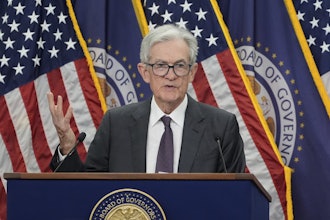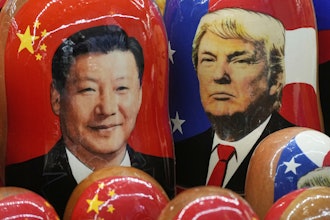
 Cliff Waldman
Cliff WaldmanThe United Kingdom vote to leave the European Union, with all of its potential world changing implications, is certainly a hot topic in Washington and in the business community. The pundit blogosphere has virtually exploded with Brexit. Manufacturers need to pay attention. But the U.K. vote needs to be put into its proper perspective as one of many difficult challenges to global manufacturing success in a difficult economic period.
With the ever-increasing global expansion, there were times in the early 2000s, when I thought that U.S. goods producers would colonize the moon. In spite of moderate factory sector growth at home, their world was growing larger. People would periodically attempt to guess where the next growth opportunity would be located for U.S. manufacturing global expansion.
Economic earthquakes of various magnitudes slowed this era of adventurism. The financial crisis of 2008 and the deep recession that occurred were watershed events in post-Cold War global economic history, exposing the weaknesses of modern economic and business models. Along many dimensions, post-Great Recession pessimism lingers and contributes to a world business climate that remains difficult eight years later.
Rolling difficulties in the wake of the Great Recession dominated the radar screens of manufacturing companies’ management. The 2011-2012 crisis in the Eurozone became a daily nail-biter regarding its economic contagion threat. And the bloom soon came off of the high-return emerging markets. China’s inevitable economic and manufacturing slowdown has been underway for years, accompanied by disturbingly belligerent behavior on the geopolitical front. India’s dramatic political transformation is certainly heartening. But economic progress under the Modi government has been slower than many expected and the next chapter has yet to be written for this promising giant nation. Meanwhile, Brazil is in various forms of economic and political free fall. Maybe the Olympics will be the first glimmer of light for Brazil. There certainly aren’t many others.
Underneath the surface of the post-2008 economic difficulties was a toxic brew of growing distrust in global economic activity as a prosperity generator — a rising anger that contributed to the dramatic U.K. referendum, the most significant change in the European economic order since the end of the Cold War.
So where do we go from here? U.S. manufacturers may wonder if the global dynamic is ever again going to be a tailwind. But as they do so, they should note a certain irony to the story of the U.K. separation from the European Union. While it is a slap in the face of globalization, its implications are already showing themselves to be global. Financial markets are telling us that. Global discussion is telling us that. Just because you turn away from the world doesn’t mean the world is going to go away.
The shock waves from Brexit will likely be the best demonstration yet of the economically integrated planet that we inhabit. And for that simple reason, new frontiers will continue to emerge for the U.S. factory sector. If the U.K. pivots in both economic and political orientation toward North America, that could have interesting and positive implications for U.S. manufacturing.
Cliff Waldman is Director of Economic Studies at MAPI.






















